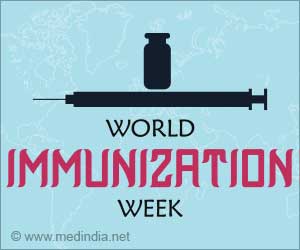- Alzheimer's disease is a degenerative disease that begins with mild memory loss and progresses to the loss of the ability to converse and respond to the surroundings
- A new study reveals that astrocytes, which are star-shaped cells in the brain, could have a role to play in Alzheimer's disease
- However, people who had an amyloid burden along with astrocyte reactivity were more likely to develop Alzheimer's disease
Astrocytes: An Important Biomarker for Alzheimer's Disease
According to a new game-changing study published in Nature Medicine, star-shaped brain cells called astrocytes are essential for swaying the pendulum in Alzheimer's disease progression (1✔ ✔Trusted SourceAstrocyte reactivity influences amyloid-β effects on tau pathology in preclinical Alzheimer's disease
Go to source).
The researchers tested the blood of more than 1,000 cognitively unimpaired elderly people with and without amyloid pathology. They discovered that only people who had a combination of amyloid burden and blood markers of abnormal astrocyte activation, or reactivity went on to have symptomatic Alzheimer’s in the future. This is an important discovery for developing therapeutics to halt the progression of the disease.
“Our study argues that testing for the presence of brain amyloid along with blood biomarkers of astrocyte reactivity is the optimal screening to identify patients who are most at risk for progressing to Alzheimer’s disease,” said senior author Tharick Pascoal, M.D., Ph.D., associate professor of psychiatry and neurology at Pitt. “This puts astrocytes at the center as key regulators of disease progression, challenging the notion that amyloid is enough to trigger Alzheimer’s disease.”
Amyloid Plaques: The Hallmark of Alzheimer’s Disease
Alzheimer's disease is a neurological illness that causes progressive memory loss and dementia, depriving people of many wonderful and useful years of their lives.At the tissue level, Alzheimer's disease is distinguished by an accumulation of amyloid plaques-protein aggregates stuck between nerve cells of the brain-and clusters of disordered protein fibers, known as tau tangles, which grow inside neurons.
For many decades, brain scientists believed that amyloid plaques and tau tangles were not merely an indication of Alzheimer's disease, but also the disease's direct cause. This notion also prompted pharma companies to spend substantially on compounds targeting amyloid and tau, ignoring the importance of other brain functions such as the neuroimmune system.
Brain Inflammation Could Lead to Cognitive Impairment
Recent findings suggest that disturbance of other brain functions, such as increased brain inflammation, may be just as significant in initiating the catastrophic cascade of neuronal death that leads to rapid cognitive loss as the amyloid burden itself.Previous studies have discovered that brain tissue inflammation promotes the spread of pathologically misfolded proteins in the brain and is a primary cause of cognitive impairment in Alzheimer's disease patients. Researchers have shown that cognitive decline can be predicted by a blood test almost two years later (2✔ ✔Trusted Source
Microglial activation and tau propagate jointly across Braak stages
Go to source).
Astrocytes are specialized cells found in abundance in brain tissue. As with other glia-resident immune cells of the brain, astrocytes provide nutrition and oxygen to neuronal cells while also protecting them against pathogens.
However, because glial cells can not transmit electricity and did not appear to have a direct part in how neurons interact with one another at first, their role in health and sickness was missed. The most recent research changes that.
“Astrocytes coordinate brain amyloid and tau relationship like a conductor directing the orchestra,” said the lead author of the study Bruna Bellaver, Ph.D., postdoctoral associate at Pitt. “This can be a game-changer to the field since glial biomarkers in general are not considered in any main disease model.”
Both Amyloid and Astrocyte Reactivity Needed for Progression to Alzheimer's Disease
Blood samples from participants in three different trials of cognitively unimpaired elderly persons were evaluated for astrocyte reactivity biomarkers-glial fibrillary acidic protein, or GFAP-as well as the presence of pathogenic tau. Only individuals who were positive for both amyloid and astrocyte reactivity exhibited indications of progressively growing tau pathology, indicating a tendency to clinical symptoms of Alzheimer's disease, according to the study.The findings have immediate implications for future Alzheimer's medication candidate clinical trials. Trials are going to earlier and earlier phases of the pre-symptomatic condition in order to arrest disease progression sooner, making accurate early detection of Alzheimer's risk vital for success. Because a considerable proportion of amyloid-positive people do not progress to clinical manifestations of Alzheimer's, amyloid positivity alone does not establish a person's eligibility for therapy.
The inclusion of astrocyte reactivity markers, such as GFAP, in the panel of diagnostic tests will allow for a better selection of patients who are likely to progress to later stages of Alzheimer's disease and, as a result, help fine-tune the selection of candidates for therapeutic interventions who are more likely to benefit.
References:
- Astrocyte reactivity influences amyloid-β effects on tau pathology in preclinical Alzheimer’s disease - (https://www.nature.com/articles/s41591-023-02380-x)
- Microglial activation and tau propagate jointly across Braak stages - (https://www.nature.com/articles/s41591-021-01456-w)
Source-Medindia










